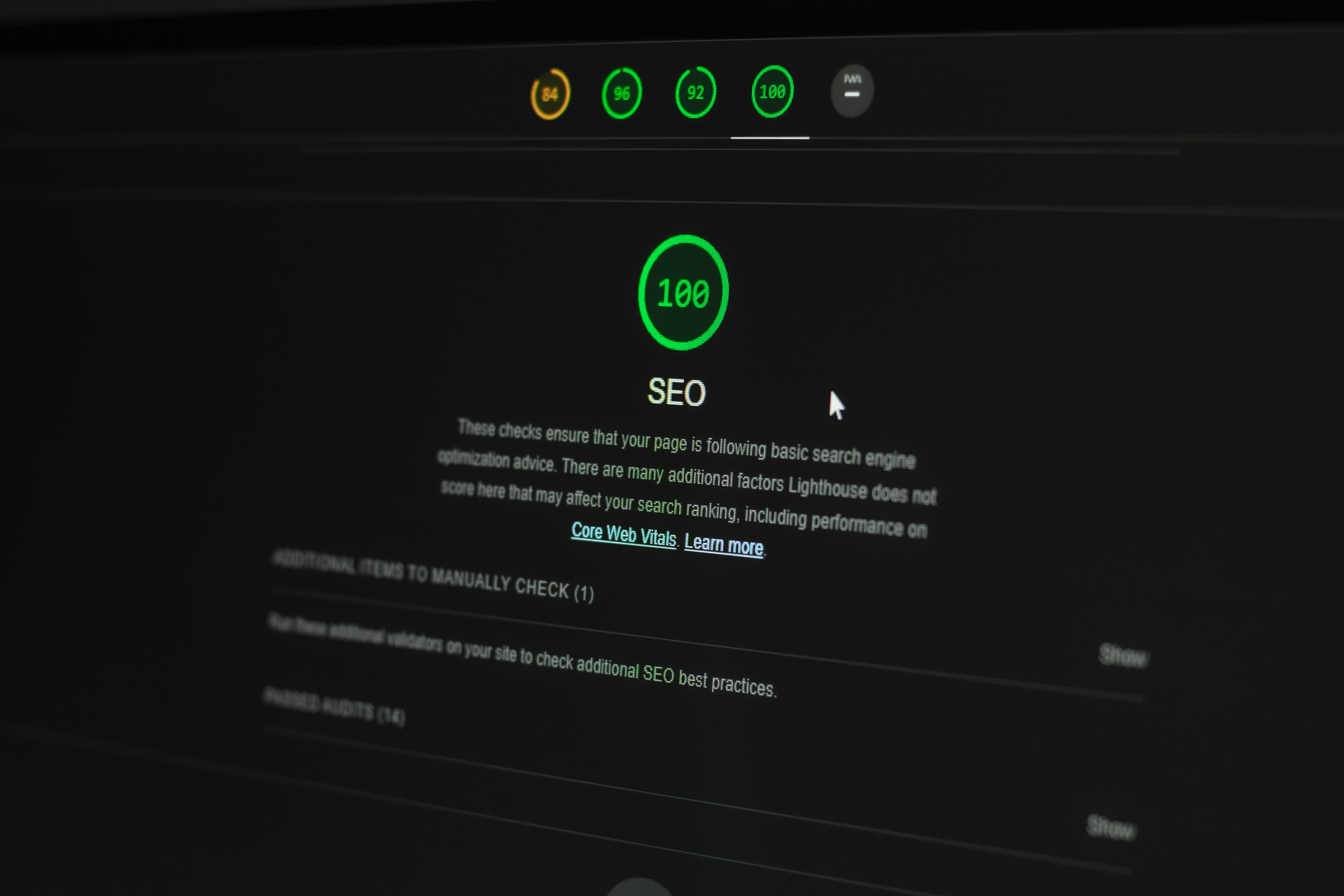Introduction to Digital Marketing for Small Businesses
In today’s rapidly evolving business environment, digital marketing has become an essential component for organizations of all sizes, particularly small businesses. As more consumers turn to the internet for their purchasing decisions, a digital marketing strategy enables small businesses to connect with their target audience effectively. Unlike traditional marketing methods, digital marketing provides distinctive advantages that can help level the playing field against larger competitors.
One significant benefit of digital marketing for small businesses is its cost-effectiveness. Many digital channels, such as social media, email marketing, and search engine optimization (SEO), offer relatively low entry costs compared to traditional advertising. This allows small businesses to allocate their resources more efficiently while still achieving substantial reach and engagement. Moreover, digital marketing strategies can be tailored to specific demographics, allowing companies to target their marketing efforts towards those most likely to convert, creating more significant value from their marketing expenditures.
Key statistics underscore the importance of integrating digital marketing into small business operations. According to recent studies, nearly 80% of consumers conduct online research before making a purchase. This statistic highlights the necessity for small businesses to establish an online presence to capture potential customers’ attention. Furthermore, digital marketing trends indicate a continued increase in online activity, signaling that small businesses that leverage these platforms can expand their visibility and enhance brand awareness much more effectively than ever before.
Additionally, digital marketing offers tools to track and measure performance metrics, providing invaluable insights into consumer behavior. This data empowers small businesses to refine their strategies continually, leading to better engagement and higher conversion rates. As a result, digital marketing is not merely an option but a vital component for small businesses aiming to survive and thrive in an increasingly competitive landscape.
Search Engine Optimization (SEO)
Search Engine Optimization (SEO) plays a critical role in the digital marketing landscape, particularly for small businesses seeking to enhance their online visibility. By focusing on SEO fundamentals, such as keyword research, on-page optimization, and link-building techniques, small businesses can establish a robust online presence. Effective keyword research involves identifying relevant terms that potential customers are likely to use when searching for products or services. This research should align with the business’s goals and target audience, ensuring that website content addresses the needs and interests of users.
On-page optimization is another essential aspect of SEO. It encompasses various techniques that improve the website’s internal elements, such as title tags, meta descriptions, and header tags. By optimizing these components, businesses can enhance their relevancy and user experience, which are signals that search engines consider when ranking websites. Furthermore, incorporating high-quality content that provides value, addresses common queries, and includes the identified keywords can significantly boost a website’s performance in search engine results.
Link-building is another vital strategy in the realm of SEO. This technique involves acquiring backlinks from reputable sources, which can enhance a website’s authority and credibility in the eyes of search engines. Small businesses can benefit from building relationships with local industry influencers and bloggers, leading to mutually beneficial partnerships that generate valuable links. Additionally, local SEO is essential for small businesses looking to capture nearby customers. Optimizing a Google My Business listing, encouraging customer reviews, and ensuring accurate business information across online directories can help improve rankings in local search results. Real-world examples, such as a local bakery thriving through effective use of SEO practices, demonstrate how these strategies can lead to increased site traffic and ultimately greater sales. In conclusion, implementing comprehensive SEO strategies can significantly impact a small business’s digital marketing success.
Social Media Marketing
In today’s digital landscape, social media marketing has emerged as a powerful tool for small businesses seeking to enhance their brand visibility and connect with customers. Organizations can leverage platforms like Facebook, Instagram, Twitter, LinkedIn, and Pinterest to reach a wide audience. The key is to select social media platforms that resonate with the target audience. For instance, Instagram is particularly effective for visually-driven businesses such as those in fashion or food, while LinkedIn is ideal for B2B companies aiming to establish professional relationships.
Creating engaging content is essential to capture the attention of users amidst the noise of social media. Small businesses should focus on developing a consistent theme and style that reflects their brand identity. High-quality images, engaging videos, and valuable posts are crucial for attracting followers. Moreover, utilizing storytelling techniques can effectively convey a brand’s message and resonate with the audience on a personal level.
Social media advertising provides an opportunity for small businesses to extend their reach beyond organic followers. Paid advertising allows businesses to craft targeted campaigns that appear to specific demographics and interests, thus optimizing ad spending. It is also vital for businesses to interact with their audience. Regularly responding to comments and messages fosters customer loyalty and builds a community around the brand.
Analytics play a significant role in refining social media strategies. Small businesses can utilize tools like Facebook Insights or Twitter Analytics to monitor engagement rates, audience demographics, and overall campaign performance. By examining this data, companies can adjust their strategies to allocate resources towards what works best. Success stories abound; numerous small businesses have successfully harnessed social media marketing to increase their customer base, drive sales, and elevate brand recognition.
Email Marketing Campaigns
Email marketing remains one of the most effective digital marketing strategies for small businesses, enabling them to communicate directly with their audience in a personalized manner. Building a robust email list is the cornerstone of successful email marketing. Small businesses can start by encouraging website visitors to subscribe through pop-up forms, landing pages, or sign-up incentives, such as exclusive discounts or informative e-books. A well-curated email list ensures that marketing efforts reach engaged and interested recipients.
Once an email list is established, the design of newsletters becomes paramount. Engaging newsletters should feature a clean layout with visually appealing elements, clear branding, and valuable content that addresses the audience’s needs. It is essential to segment the email list based on customer preferences, behaviors, or demographics. This segmentation allows small businesses to create tailored messages that resonate with different audience segments, leading to higher engagement rates.
Crafting compelling subject lines is critical to increasing open rates. Subject lines should be concise, intriguing, and relevant to the content within the email. Incorporating action verbs and personalization, such as including the recipient’s name, can enhance click-through rates significantly. Equally important are persuasive calls to action (CTAs), which should lead recipients clearly to the desired action, whether it’s making a purchase, signing up for a webinar, or reading a blog post.
To gauge the effectiveness of email marketing campaigns, small businesses should monitor performance metrics such as open rates, click-through rates (CTR), and conversion rates. These metrics provide insight into the success of campaigns and areas requiring improvement. Ultimately, successful small businesses that leverage email marketing often report increased customer retention and sales, demonstrating its crucial role in the digital marketing landscape.
Content Marketing Strategies
Content marketing has emerged as an essential strategy for small businesses aiming to build brand authority and foster trust among their customers. By employing various types of content—including blogs, videos, and infographics—small businesses can effectively communicate their value proposition and engage their target audience. Establishing a content calendar is crucial, as it allows businesses to plan, organize, and publish diverse content consistently while aligning with key marketing goals.
Blogging, for instance, serves as a platform for sharing insights, industry news, and expertise, which can position a business as a thought leader in its field. Video content, on the other hand, can offer a dynamic way to present products or services, engage viewers, and improve retention rates. Infographics can serve to distill complex information into easily digestible and visually appealing formats, making data more accessible to a broader audience.
The power of storytelling in content marketing cannot be underestimated. By weaving compelling narratives around their brand, small businesses can create emotional connections with their audience, making their messaging more relatable and memorable. This approach also facilitates the establishment of a cohesive brand voice, which in turn bolsters customer loyalty.
Promoting content effectively is equally important; leveraging various channels such as social media, email newsletters, and partnerships with influencers can help amplify reach and engagement. Small businesses that have succeeded in utilizing content marketing strategies, such as local cafés that share recipes or startups that offer tutorials, underline the potential of this approach. Their success stories exemplify how content marketing can drive traffic, enhance brand perception, and ultimately lead to higher sales figures.
In conclusion, incorporating a well-rounded content marketing strategy is essential for small businesses striving to establish authority and connection with their audience. The multifaceted nature of content, combined with strategic promotion and a storytelling approach, positions businesses for success in an increasingly competitive digital landscape.
Pay-Per-Click Advertising (PPC)
Pay-Per-Click (PPC) advertising is a digital marketing strategy that allows small businesses to enhance their online presence without the substantial financial commitment often associated with traditional advertising methods. Utilizing platforms such as Google Ads and Facebook Ads, businesses pay for ads only when a user clicks on them, making it a cost-effective option for those operating on a limited budget.
One of the primary advantages of PPC is the ability to set strict budget limits. This ensures that small businesses can control their spending while still gaining visibility in competitive markets. For example, Google Ads enables advertisers to establish daily budget constraints, allowing for maximum control over advertising costs while still providing opportunities for increased customer engagement.
Targeting specific demographics is another significant benefit of PPC. Advertisers can customize their campaigns based on various factors such as location, age, interests, and purchasing behavior. This precise targeting enhances the likelihood that ads will reach a receptive audience, which can lead to higher conversion rates. Crafting effective ad copy is crucial in this context; concise, compelling messaging that highlights a product’s benefits is essential in sparking user interest and driving clicks.
The effectiveness of PPC campaigns can be measured through tracking conversions and calculating the return on investment (ROI). This involves setting up conversion tracking to see how many clicks result in actionable outcomes, such as purchases or sign-ups. By regularly analyzing campaign performance through analytics tools, small businesses can optimize their strategies and allocate resources more efficiently, ensuring that every dollar spent is maximized for impact.
Several small businesses have reported successful outcomes through targeted PPC advertising. These case studies demonstrate that with careful planning and execution, even limited budgets can yield significant results in customer acquisition and revenue generation, thus solidifying PPC as an integral strategy for small business growth.
Influencer Marketing for Small Businesses
In the contemporary landscape of digital marketing, influencer marketing has emerged as a vital strategy for small businesses aiming to enhance their brand visibility and reach new audiences. This approach involves collaborating with individuals who have established credibility and following within specific niches, enabling small businesses to leverage their influence to promote products and services effectively. The growing trend of influencer marketing is particularly beneficial for small businesses that may not have extensive advertising budgets, as it can yield a high return on investment when executed strategically.
To successfully implement influencer marketing, small businesses first need to identify relevant influencers within their industry. This can be achieved by researching social media platforms, blogs, and forums where potential influencers share content related to the business’s niche. It’s crucial to evaluate influencers based on their engagement rates, audience demographics, and authenticity, as partnering with the right individuals can significantly amplify marketing efforts.
Establishing mutually beneficial partnerships is a key aspect of influencer marketing. Small businesses should approach influencers with a clear value proposition that outlines what they can offer in return for their collaboration. This may include product samples, monetary compensation, or the opportunity for influencers to build their own content around the business. Additionally, it is important to negotiate terms that clarify expectations for both parties, including timelines, deliverables, and methods of promotion.
To measure the success of influencer campaigns, businesses can track engagement metrics, sales conversions, and website traffic generated as a direct result of the partnership. Utilizing analytics tools can provide insights into how the collaboration is performing and inform future marketing strategies. Several small businesses have reported increased brand awareness and customer engagement after successful influencer collaborations, highlighting the potential of this marketing strategy. By effectively leveraging influencer marketing, small businesses can position themselves for sustainable growth in a competitive digital environment.
Analytics and Performance Measurement
In the realm of digital marketing, measuring performance is paramount for small businesses striving to optimize their strategies and achieve desired outcomes. Analytics allow businesses to understand the effectiveness of their campaigns and make informed decisions based on data. Various essential tools and metrics are available that facilitate this process, including Google Analytics, which offers valuable insights into website traffic and user behavior. Utilizing these analytics enables marketers to identify trends, track engagement, and assess the overall performance of their online presence.
Social media analytics is another critical resource that small businesses must leverage. Platforms such as Facebook, Instagram, and Twitter provide comprehensive data regarding audience engagement, reach, and demographics. By analyzing this information, businesses can tailor their content to resonate more effectively with their target audience, thereby enhancing their social media marketing efforts. Additionally, email marketing metrics, including open rates, click-through rates, and conversion rates, play a crucial role in evaluating the success of email campaigns. Understanding these metrics helps businesses refine their messaging and improve customer engagement.
Interpreting data is essential for making informed adjustments to marketing strategies. Small businesses should actively assess performance metrics and extract actionable insights. For instance, if a particular social media post garners high engagement, businesses can replicate this success by creating similar content in the future. Conversely, if certain campaigns underperform, they can be analyzed to determine the underlying issues, enabling marketers to pivot their strategies accordingly.
Numerous small businesses have successfully harnessed analytics to enhance their marketing efforts. For example, a local café utilized Google Analytics to track user interactions on its website, revealing peak visiting times and popular menu items. This insight allowed the café to adjust its promotional strategies and optimize its offerings, resulting in increased foot traffic and sales. By employing analytics and performance measurement tools effectively, small businesses can gain a competitive edge in the digital landscape.
Building an Integrated Digital Marketing Strategy
In today’s digital landscape, small businesses must leverage a cohesive digital marketing strategy that integrates various approaches such as search engine optimization (SEO), social media marketing, email campaigns, and pay-per-click (PPC) advertising. An integrated strategy not only enhances visibility across multiple platforms but also ensures that all efforts are aligned towards common business objectives, resulting in maximum impact.
To effectively align these different channels, businesses should begin by identifying their target audience and understanding their preferences and behaviors. This foundational knowledge enables small businesses to create tailored content that resonates across SEO and social media platforms. For instance, keywords that are effective for SEO can inform social media content, ensuring consistency in messaging and enhancing brand recognition.
Email marketing also plays a critical role in an integrated strategy. By utilizing data from social media engagement and website traffic, small businesses can segment their email lists and create targeted campaigns that address specific customer needs or interests. A PPC strategy can further complement these efforts by driving immediate traffic to landing pages that capture leads generated from organic and social media channels.
Continuous review and adjustment of these strategies are crucial. Small businesses should regularly assess performance metrics such as click-through rates, conversion rates, and engagement levels to identify what works and what does not. Gathering feedback through surveys and monitoring changing market conditions will enable businesses to pivot their strategies effectively, ensuring they remain relevant and competitive.
Ultimately, fostering a digital marketing mindset allows small businesses to embrace trends and adapt swiftly to the evolving digital landscape. By implementing an integrated digital marketing strategy and being responsive to data-driven insights, small businesses can achieve sustained growth and build lasting customer relationships.











